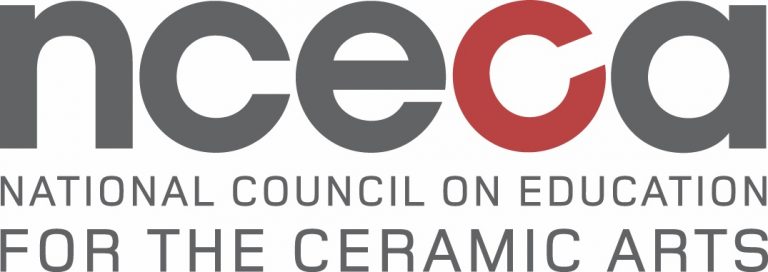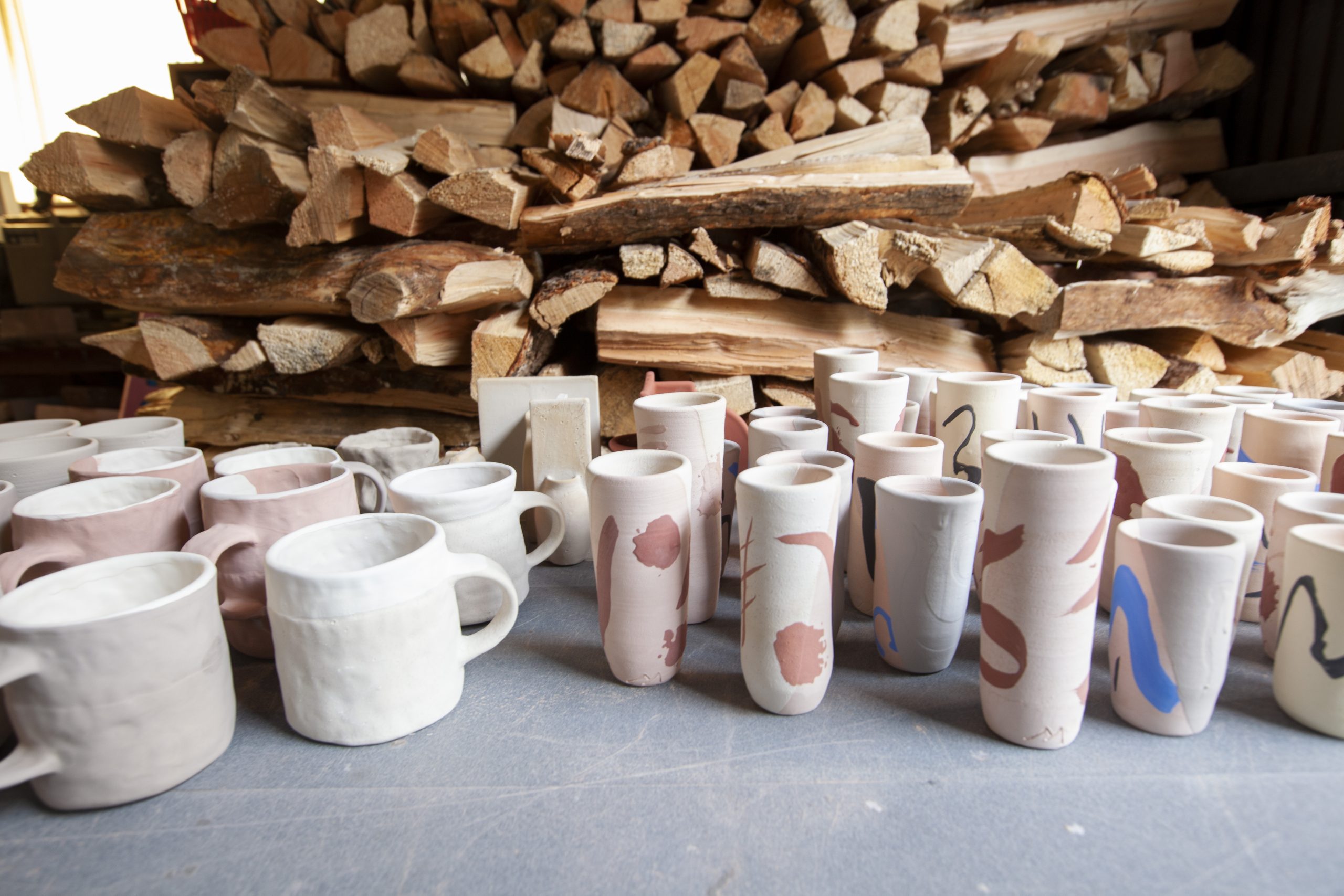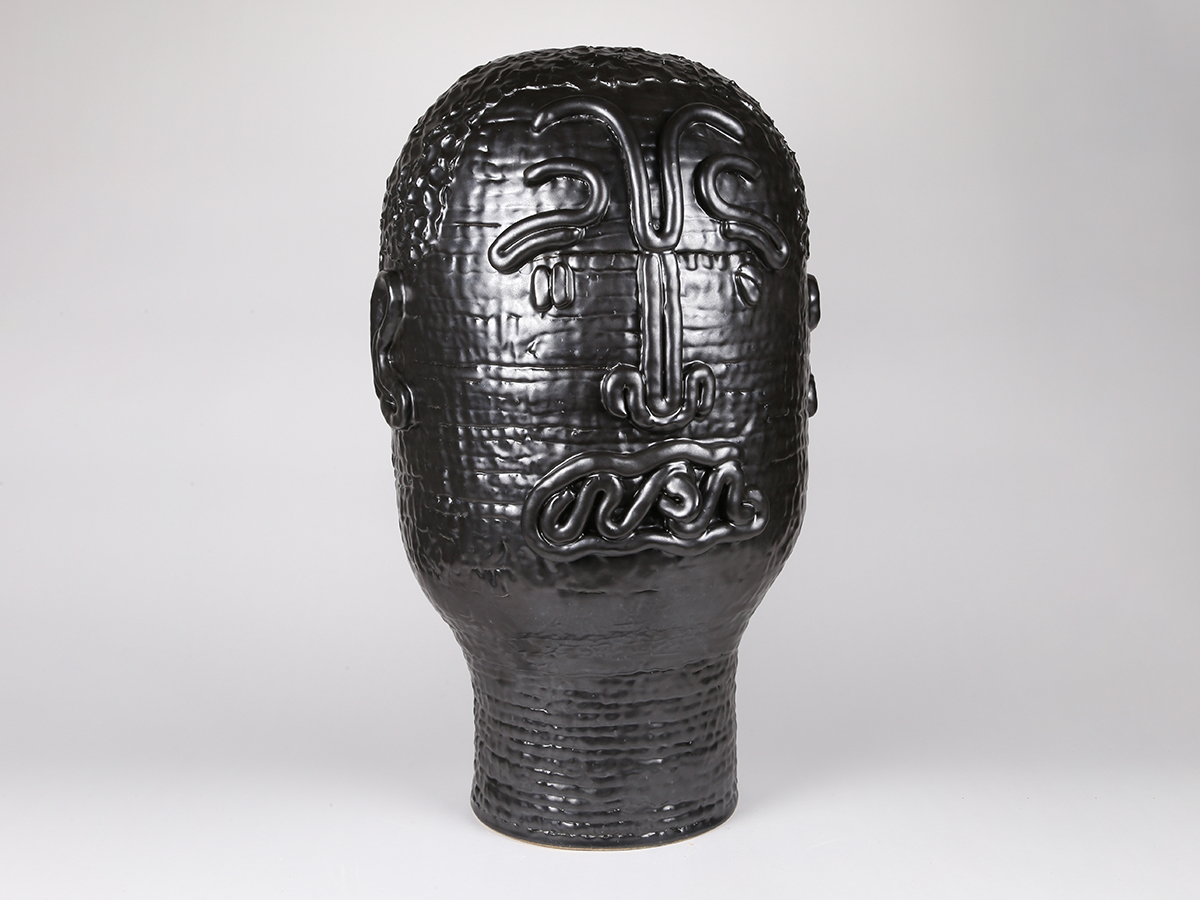Ceramics
Code: C0912-25
-
I
Level I
Students are new to ceramics and have no formal training.
Beginning Adult Wheel: Back to Basics
Jul 28 - Aug 1, 2025
9AM-5PM
Tuition: $1,390.00
Studio Fee: $100.00
Registration Fee: $45.00
NEW: Tuition includes the welcome dinner and daily lunch
Registration Information
Concept
This beginner’s workshop is designed for students who have never touched clay before or want to improve their basic skills in throwing. Students start with centering the clay and work their way to the creation of forms—cylinders, bowls, and vases. This workshop focuses on wheel-throwing, though participants are able to bisque to take home.
Media & Techniques
Low fire clay, potter’s wheel, clay tools, wheel-throwing, trimming, bisque firing.
Faculty

Joanne Seongweon Lee
Studio Coordinator, Ceramics
Originally from South Korea, Joanne Seongweon Lee received her BFA from New York State College of Ceramics at Alfred University with a concentration in Ceramics in 2015. After graduation, she moved back to South Korea for an Artist in Residence program at the Korea Ceramic Foundation: Icheon Cerapia. She completed an MFA from Cranbrook Academy of Art in 2019 and achieved the Franz Rising Start Project Scholarship: Outstanding Performance in Porcelain Design in that same year. After graduating, she finished her Residency at Sonoma Ceramics in Sonoma, California. In 2021, Joanne taught numerous Ceramics courses for various levels at the James Madison University in Harrisonburg, Virginia.

Joanne Lee, Untitled
Tuition: $1,390.00
Studio Fee: $100.00
Registration Fee: $45.00
NEW: Tuition includes the welcome dinner and daily lunch
Registration Information
Join Waitlist for Beginning Adult Wheel: Back to Basics
Thank you for your interest in the waitlist. When space in a workshop or program becomes available, registration will open on the website. Everyone on the waitlist will be emailed to alert them of the opening. This ensures that everyone has an equal opportunity to register for the workshop or program.
Ceramics
In 1966, American ceramicist Paul Soldner selected the site for what is now Anderson Ranch Arts Center, forming the foundation for a thriving ceramics program. Then and now, Anderson Ranch is a place where students exchange ideas and examine ceramic art and pottery techniques. It has always been a place where seminal moments of growth happen in an artist’s creative and critical thinking. Here, both beginning and emerging artists gain strong fundamental support, while established artists achieve new perspectives and advance their techniques.
The Ranch Ceramics team provides support, feedback and technical problem-solving, giving each artist the freedom to experiment and grow. Our primary focus is on personal advancement through a process of creative discovery.
The Soldner Ceramics Center makes up more than 10,000 square feet in three buildings with 3 studio spaces and 1 kiln yard; Soldner Studio, Long Studio, Sorenson Studio and Lyeth/Lyon Kiln Building. Soldner and Long studios are used for wheel-throwing, hand-building, or general ceramics creativity. Sorenson studio is equipped with five PotterBot 3d clay printers. The Lyeth/Lyon kiln building is equipped with gas, electric, soda and wood kilns for both oxidation and reduction firing at all temperature ranges. The Ranch offers three wood kilns including a gas/wood hybrid kiln, three gas reduction kilns, one soda kiln and eleven high-temperature electric kilns.

Anderson Ranch is happy to extend a tuition discount* in summer one- or two-week adult ceramics workshops** for NCECA members at the student membership level or above. Please email reg@
Workshop Details
Workshop Supplies
For general information about studio access, shipping, and more, please visit our info page.
If you have any questions regarding your supplies for your workshop, please contact Joanne Seongweon Lee, [email protected].
Provided by Anderson Ranch
Equipment
- Kilns
- Shared Tables
- Water Buckets
- Wheel
Supplies
- Plastic for Covering Works
- The clay allowance is 50 pounds for this one-week workshop. Only the clays and glazes chosen for the workshop will be available for use, which are predetermined by the instructor. Please do not bring additional clay from your studio.
What you need to bring
Required Tools and Supplies
- Apron and/or Towel**
- Basic Pottery Tools**
- Favorite Pottery Tools From Your Home Studio
- Sketchbook/Notebook**
Optional Tools and Supplies
- Packing Materials**
- T-Shirt for Screen Printing**
* Available for purchase in the studio.
** Available to purchase at the Anderson Ranch ArtWorks Store for 10% off.
Learn more about shipping supplies and artwork to and from the Ranch in the Student Handbook.
Lodging & Meals
Housing is limited and includes shared and private lodging options. Reservations will be managed on a first-come, first-served basis. The earlier you reserve housing, the better your chance of receiving your preferred option. Please note: Workshop costs do not include accommodations.
NEW: Tuition includes a welcome dinner and lunches. In our effort to foster a stronger sense of community and accessibility at Anderson Ranch, we include the welcome dinner and all lunches as part of the tuition for summer workshop students. Our hope is that this adjustment will encourage all students to come together to share meals and engage in meaningful conversations. The Ranch Café Meal Plan, which is included with Room and Board fees, strives to provide healthy, creative meals that will nourish your artistic creativity. Learn more.
We have established a Business Safety Plan with added layers of precaution that prioritize the health and safety of our staff, students, faculty and guests while continuing to provide you with the Anderson Ranch experience that you know and enjoy.
Related Events

Scholarships, College Credit & Discounts
Making Art Accessible
Applications for scholarship support are encouraged. Specific scholarships are funded by Ranch supporters, either through endowed funds or special gifts.
Many colleges and universities offer college credit for workshops taken at Anderson Ranch. Discounts are available for students and teachers.
You Might Also Be Interested In

-
II
Level II
Students have a basic understanding of forming techniques, such as throwing and hand building. Students have taken one or two ceramics classes or workshops.
-
III
Level III
Students have significant experience with clay forming techniques, such as throwing, hand building and modeling. Students are comfortable with ceramics equipment, such as wheels, extruders and slab rollers. Students are self-starting with some formal training and have taken a minimum of three classes or workshops.
Jul 28 - Aug 8, 2025
9AM-5PM
Clay as Canvas: Drawing and Decoration on 3D Forms
Kyungmin Park, Jason Walker
Tuition $1,910
Code C0913-25
This co-taught workshop explores surface decoration techniques on three-dimensional clay form. Jason Walker demonstrates crafting intricate animal figures and functional forms using hand-building and slip casting techniques, and brushwork drawing techniques on bone-dry clay with underglaze. Kyungmin Park guides the creation of human figurative sculptures decorated with a variety of vivid underglazes on bisque wares. Together, they offer diverse methods, from bold and colorful to subtle and refined, helping you discover new ways to enhance and elevate your clay sculptures. Kyungmin Park was recently featured in The Boston Globe. View the article and learn about her process.

-
II
Level II
Photography students have a basic understanding of photography principles and technology and are comfortable using an SLR camera in manual mode. New Media students have a basic understanding of video, multimedia or animation software. Students have basic computer skills and are comfortable using a Macintosh computer.
-
III
Level III
Photography students have some formal training and significant experience making, capturing and digitally processing images using Adobe Lightroom and/or Adobe Photoshop. New Media students have some formal training in conceptual and technological aspects of video, multimedia, coding or animation and are versed in the appropriate software applications. Students have a portfolio of their artwork.
-
IV
Level IV
Photography students have advanced skills and knowledge of photography and digital image processing. New Media students have advanced skills and knowledge of video, multimedia, coding or animation. Students are self-motivated and have multiple portfolios of their artwork.
Jul 28 - Aug 1, 2025
9AM-5PM
Impressions on Clay: Merging Photography, Painting, and Ceramics
Yana Payusova
Tuition $1,380
Code P0923-25
In a contemporary art world where "mixed media" is increasingly prominent, exploring the development of 2D imagery for 3D forms is a timely approach in ceramics. This immersive workshop delves into the intersection of photography, screen printing, and ceramics, encouraging students to merge and expand these mediums in innovative ways. With a focus on narrative development, participants work with personal, found, or generated images to create visual stories. Emphasizing the conceptual development of photographic imagery and pictorial illustrations, students design and produce screen-printed decals for transferring onto fired ceramic surfaces. During their studio experience, students are welcome to hand build day one and then focus on image preparation and design and transfer. This workshop provides artists with the tools to seamlessly integrate 2D and 3D elements in their work.

-
IV
Level IV
Students have advanced skills and knowledge of the ceramics field. Students are highly motivated, have a minimum of five years experience in the field and have a portfolio of their artwork. Typical students are academics and professional artists.
Aug 4 - 15, 2025
9AM - 5PM
Advanced Mentored Studies: The Mold and Matrix: Ceramic Process and Narrative Form
Ebitenyefa Baralaye, Del Harrow
Tuition $2,510
Code C1001-25
This three-year mentorship program is intended for ceramic artists interested in critical feedback and immersion in a creative community and who are at a point of transition in their lives, careers, or artistic practices. Emphasis is placed on seeking connections, metaphors, and symmetries between processes for forming clay and developing ways of generating meaning. The objects we make tell stories and propose worlds; a coil and a mold are both techniques for forming clay and also propositions about the meaningful interface of material, body, mind, economy, and culture. We focus on ways stories emerge from physical objects and how narratives give structure to physical form. We welcome participants from many different backgrounds and experiences, centering on work in clay but with the potential for different outcomes, including work in other materials, writing, sculpture, and design. 2025 is the third year of this three-year intensive program. For more information about our next session of this Advanced Mentored Studies program, which begins in 2026, please contact Betsy Alwin, Visiting Director of Ceramics and Expanded Media at [email protected].















